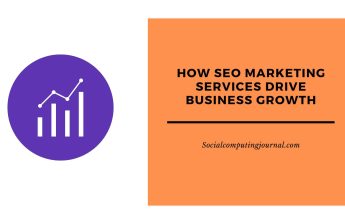Money management doesn’t require a finance degree or a complicated strategy. You just need the right mindset, some practical tools, and a commitment to consistency. Whether you’re a student, a working professional, or nearing retirement, financial control remains essential. Learning how to handle your money can reduce stress, improve decision-making, and give you freedom. It’s not about being perfect; it’s about being intentional. You don’t need to be rich to manage your finances well. You only need to start where you are. This guide will walk you through simple, clear steps to take control of your money—at any stage of life.
Contents
- 1 Understand Your Relationship with Money
- 2 Start with a Budget That Works for You
- 3 Build an Emergency Fund You Can Rely On
- 4 Eliminate High-Interest Debt Strategically
- 5 Invest Early, Even If It’s Just a Little
- 6 Protect Yourself with the Right Insurance
- 7 Keep Learning About Personal Finance
- 8 Set Clear Financial Goals
Understand Your Relationship with Money
Your money mindset influences how you spend, save, and invest. Some people see money as a source of stress; others treat it as a tool. The first step to financial control starts with understanding how you view money. Do you feel guilty when you spend? Do you ignore your finances until there’s a problem? Reflect on your habits and feelings. Journaling your thoughts or taking a money personality quiz can help. Once you recognize your behaviors, you can start replacing harmful patterns with healthier ones. Financial freedom starts with self-awareness, and it sets the tone for all your future decisions.
Start with a Budget That Works for You
Budgets often get a bad reputation, but they don’t restrict you—they empower you. A good budget reflects your goals, values, and income. It tells your money where to go instead of wondering where it went. Use the 50/30/20 rule as a baseline: 50% for needs, 30% for wants, and 20% for savings or debt. Digital tools and apps can make your life easier than ever. Many services also offer a free debit card online when you open an account with them. The key is finding a system you enjoy using, then sticking with it consistently.
Build an Emergency Fund You Can Rely On
An emergency fund is your financial safety net. It keeps unexpected events from turning into long-term setbacks. Without one, a car repair, medical bill, or sudden job loss can derail your progress. Aim to save at least three to six months’ worth of only essential expenses. Start small if you need to—$500 can be the difference between peace and panic. Keep the money in a high-yield savings account where it’s easy to access but not tempting to touch. Regularly contributing, even small amounts, will grow your fund over time. This buffer gives you control and confidence during life’s unpredictable moments.
Eliminate High-Interest Debt Strategically
Debt doesn’t just affect your wallet—it weighs on your mental health too. Focus on paying off high-interest debt, like credit cards, as soon as possible. It drains your finances and makes progress feel impossible. Use the avalanche method to pay off debt from highest to lowest interest rate or the snowball method to gain motivation with small wins. Whichever you choose, commit to regular payments and avoid adding more debt. Every dollar you free from interest payments is a dollar that can go toward savings or investing. Reducing debt gives you room to breathe and strengthens your long-term financial health.
Invest Early, Even If It’s Just a Little
Investing might seem intimidating, but it’s one of the most powerful ways to grow your wealth. The sooner you start, the more you benefit from compound interest. You don’t need thousands to begin—many platforms allow you to invest with as little as $5. Start with low-cost index funds or ETFs and avoid trying to time the market. Think long-term and stay consistent. Contribute to a retirement account, especially if your employer offers a match. Over time, small contributions add up. Investing early gives your money time to work for you and reduces the pressure to save huge amounts later in life.
Protect Yourself with the Right Insurance
Insurance often feels like an unnecessary expense until you need it. It plays a critical role in protecting your financial future. Health insurance shields you from overwhelming medical costs, while auto and home insurance protect valuable assets. Life insurance becomes essential when others depend on your income. Don’t forget disability insurance—it can replace lost income if you can’t work. Evaluate your policies annually and shop around for better rates when needed. The goal isn’t to buy every policy available, but to cover the risks you can’t afford to handle alone. Think of insurance as a safety net, not a burden.
Keep Learning About Personal Finance
Financial literacy isn’t a one-time lesson—it’s a lifelong process. The more you know, the more confident you’ll feel in making smart money decisions. Start with books, podcasts, or trustworthy websites. Follow finance experts who break down complex topics into simple language. Stay curious and question things that sound too good to be true. Whether it’s learning about taxes, real estate, or investing strategies, every bit of knowledge helps. Try to read one new personal finance article or watch one video a week. Staying informed ensures you adapt to life changes, financial trends, and new opportunities that come your way.
Set Clear Financial Goals
Goals give your money a mission. Without them, it’s easy to spend impulsively or save without purpose. Set short-term goals such as building a $1,000 emergency fund, mid-term goals like paying off a car loan, and long-term goals like buying a home or retiring early. Be specific: how much do you need, and by when? Break big goals into manageable steps and track your progress regularly. Visualization helps—use a goal tracker or vision board to stay motivated. When your goals align with your values, saving becomes easier. Every financial choice becomes clearer when it serves a bigger purpose.
Taking control of your finances doesn’t require perfection—it requires action. Start with understanding your mindset, then build systems that match your lifestyle. Use tools like budgets, emergency funds, and insurance to build a solid foundation. Eliminate debt, invest early, and continue learning. Set goals that inspire you and adjust as life evolves. Share what you know to empower others. Each step you take brings clarity, confidence, and freedom. No matter your age or income, you can build a future where money supports your dreams instead of limiting them. Start today—your financial future begins with the choices you make right now.







